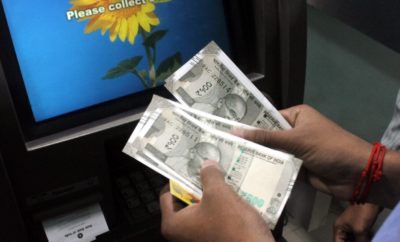Business
Auckland Chef Awarded Compensation for Unfair Dismissal

Investigations by Employment Relations Authority revealed that Babu Pandit's job was terminated over a “miscommunication”.
Babu Pandit, a chef in Auckland who was in residing in New Zealand on a work visa, has been awarded NZD $33,465 as compensation for being dismissed unfairly from work.
Pandit, who worked for the Indian restaurant chain Satya was awarded $18,465 as lost wages and $15,000 for humiliation caused by the actions of his employer, Akuthota Jwala Narsimha Swamy, New Zealand Herald reported. He was working at Satya in Mount Eden from April 2013 to September 2016. He earned NZD $26,152 per year. He was recruited from Hyderabad in 2012 by Swamy.
Pandit’s job was unfairly terminated and his work visa cancelled by New Zealand while he was on leave, according to the Employment Relations Authority. He left New Zealand last year for an extended leave to India, after which he was planning to get his family to the country. However, based on two emails and a letter sent by his employer Swamy, Immigration New Zealand cancelled his visa in November 2016.
The letter written by Swamy stated that Pandit disguised a diagnosis of diabetes and manipulated his medical condition while applying for his most recent work visa. “Based on this information, we request to terminate his visa as we will not be employing him further,” he wrote in the letter.
Swamy also asked the authorities to keep his email anonymous and wanted to be intimated “when action taken”. After the Immigration evaluator verified the contents of the letter with a signed letter from Swamy, Immigration New Zealand told Pandit in a letter that it had received information that he was no longer employed and intended to cancel his visa. They also posted a border alert so that he could not check into New Zealand-bound flights.
The Employment Relations Authority was told that Pandit was advised by his doctor to change his diet and lifestyle after a routine blood test for his work visa application indicated a spike in blood sugar levels. He was prescribed iron supplement tablets. After eight weeks, the test was repeated with satisfactory results and he was given a visa.
According to the investigation conducted by the Authority, discussion between Swamy, Pandit and another worker led to the miscommunication around Pandit’s high blood sugar levels and claims of him obtaining medicine to mask symptoms. The investigation revealed that while Pandit obtained tablets of some form from his restaurant manager, he had, in fact, just changed his diet and drank large amounts of water.
Swamy expressed his concern to the Authority at the idea that Pandit may have achieved work visa by masking his symptoms. He did not talk to Pandit directly about this.
As Swamy acted on second-hand account, the Authority stated that he should have provided Pandit with the opportunity to respond to his cause for concerns, “had the needed email and contact information to do so, and that there was no rush for him to act on the story as there were several weeks for him to respond before he was due to return to work.”
According to Swamy, he acted promptly because he did not want to compromise on the status of his business.
“A fair and reasonable employer could not have acted on that supposed information without providing an opportunity to comment and possibly correct it,” the Authority’s decision stated.w




You must be logged in to post a comment Login